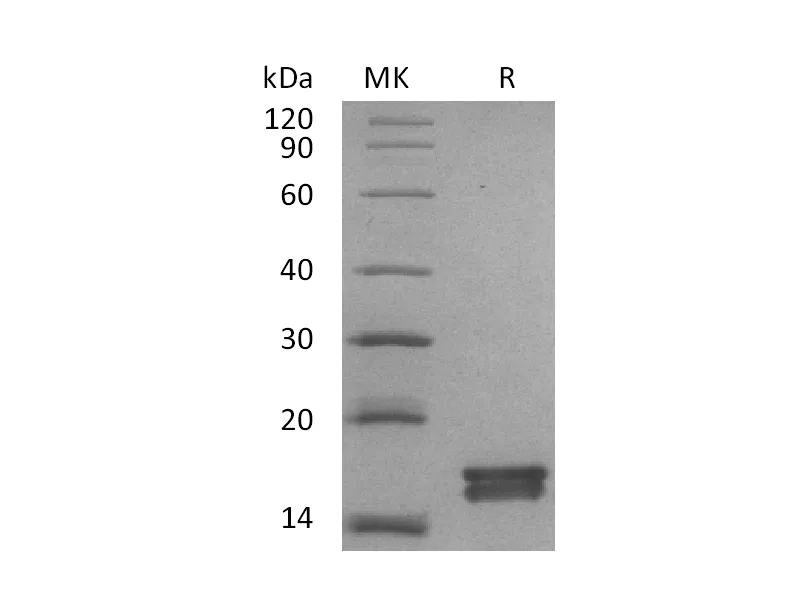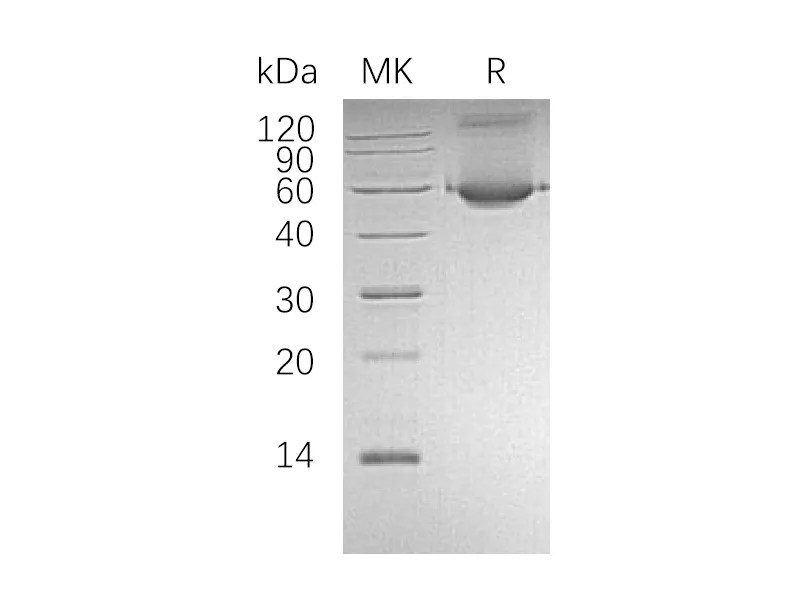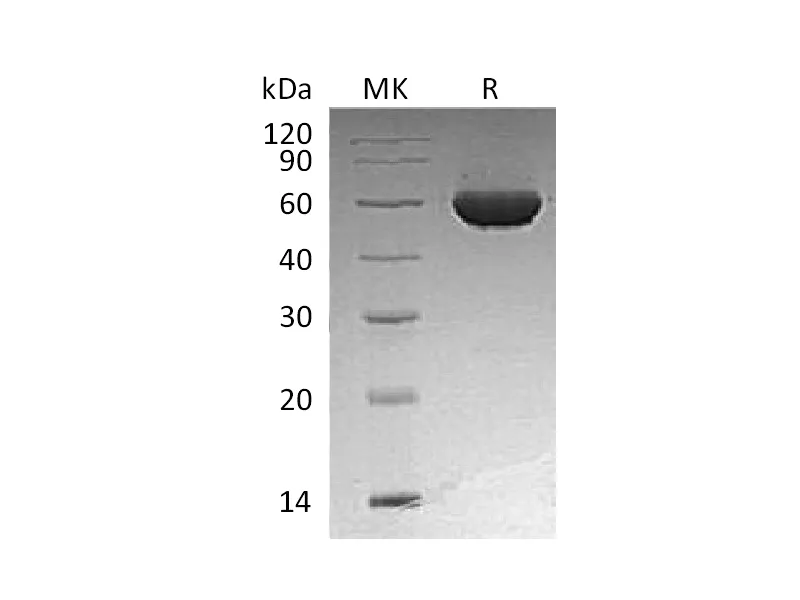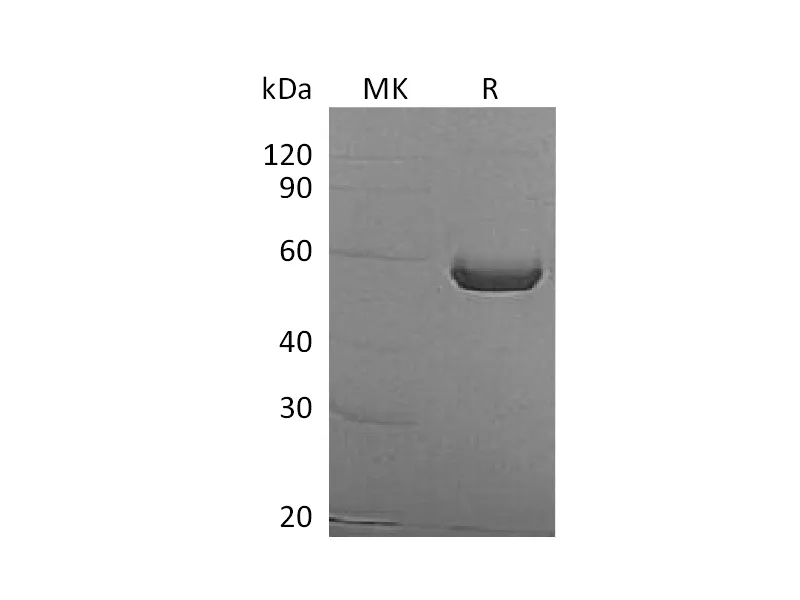Alternative Names
1F5 antigen; 1F5; 20 kDa homologous restriction factor; CD59 antigen; CD59 glycoprotein; CD59; HRF20; HRF-20; MACIF; MAC-IP; MIC11; MIC11MSK21; MIN1; MIN2; MIN3; MIRL; p18-20; 16.3A5; EL32; FLJ38134; FLJ92039; G344
Background
CD59, also known as membrane attack complex inhibition factor (MACIF), Protectin, 1F5 antigen, HRF-20 and MIRL, is an approximately 20 kDa GPI anchored glycoprotein that is an important regulator of the complement system in blood. CD59 is a potent inhibitor of the complement membrane attack complex (MAC) action. CD59 was first identified as a regulator of the terminal pathway of complement. It acts by binding to the C8 and/or C9 complements of the assembling MAC, thereby preventing incorporation of the multiple copies of C9 required for complete formation of the osmolytic pore. This inhibitor appears to be species-specific. CD59 is involved in signal transduction for T-cell activation complexed to a protein tyrosine kinase.
Note
For Research Use Only , Not for Diagnostic Use.




